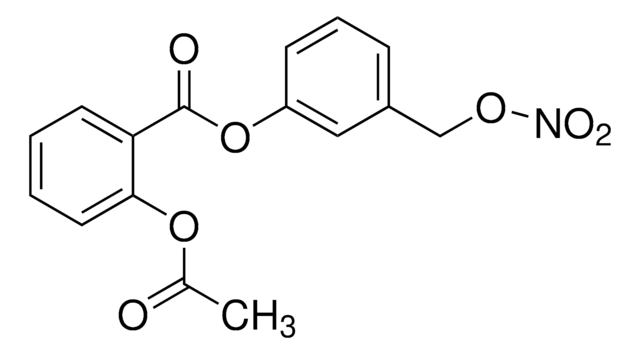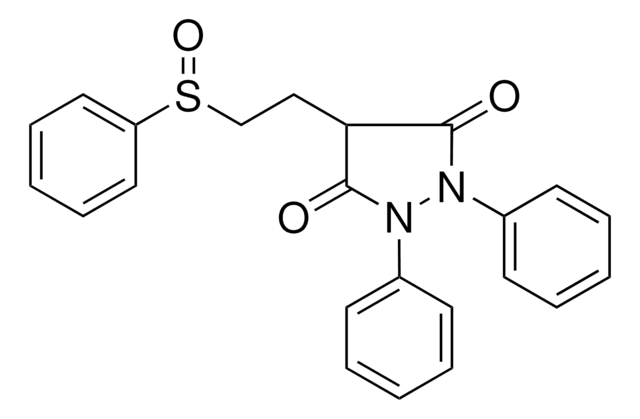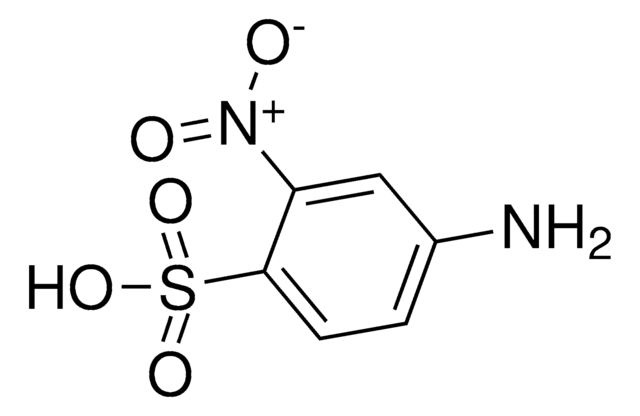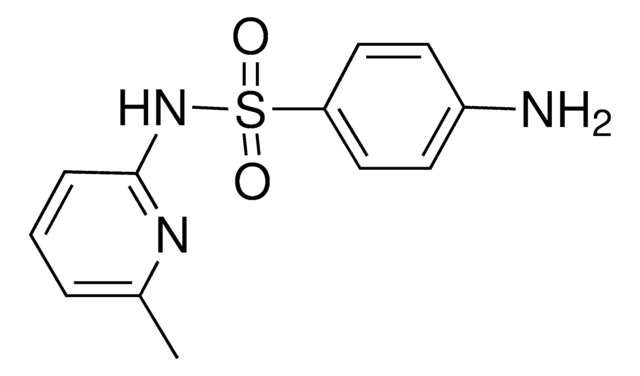SML0414
NCX 4040
≥98% (HPLC)
Synonym(s):
2-(Acetyloxy)benzoic acid 4-(nitroxymethyl)phenyl ester, NO-aspirin
About This Item
Recommended Products
Quality Level
Assay
≥98% (HPLC)
form
powder
storage condition
protect from light
color
white to beige
solubility
DMSO: 15 mg/mL (clear solution)
storage temp.
−20°C
SMILES string
CC(=O)Oc1ccccc1C(=O)Oc2ccc(CO[N+]([O-])=O)cc2
InChI
1S/C16H13NO7/c1-11(18)23-15-5-3-2-4-14(15)16(19)24-13-8-6-12(7-9-13)10-22-17(20)21/h2-9H,10H2,1H3
InChI key
CTHNKWFUDCMLIQ-UHFFFAOYSA-N
Biochem/physiol Actions
Features and Benefits
Signal Word
Danger
Hazard Statements
Precautionary Statements
Hazard Classifications
Aquatic Acute 1 - Eye Dam. 1 - Skin Sens. 1
Storage Class Code
11 - Combustible Solids
WGK
WGK 3
Flash Point(F)
Not applicable
Flash Point(C)
Not applicable
Certificates of Analysis (COA)
Search for Certificates of Analysis (COA) by entering the products Lot/Batch Number. Lot and Batch Numbers can be found on a product’s label following the words ‘Lot’ or ‘Batch’.
Already Own This Product?
Find documentation for the products that you have recently purchased in the Document Library.
Our team of scientists has experience in all areas of research including Life Science, Material Science, Chemical Synthesis, Chromatography, Analytical and many others.
Contact Technical Service
